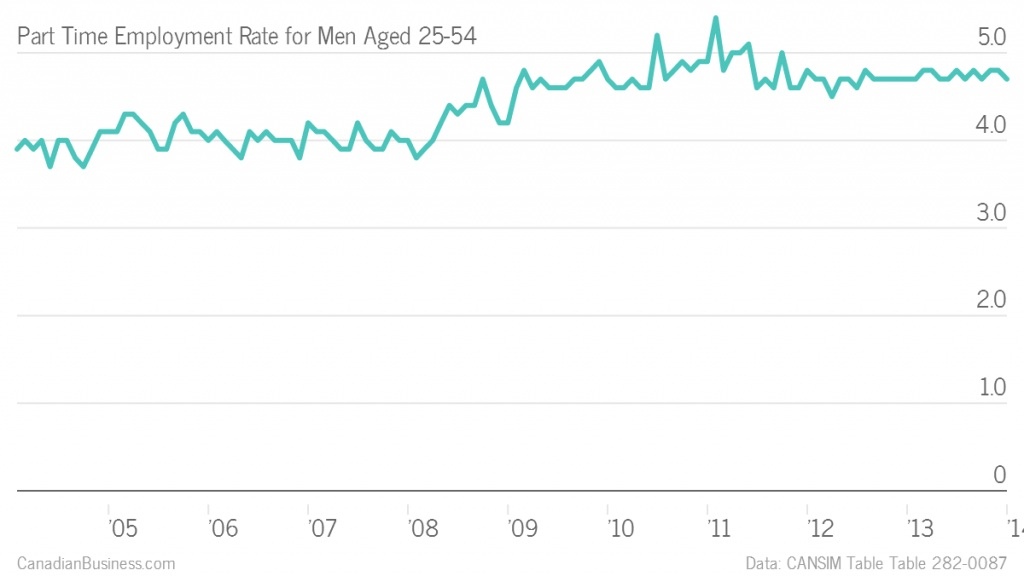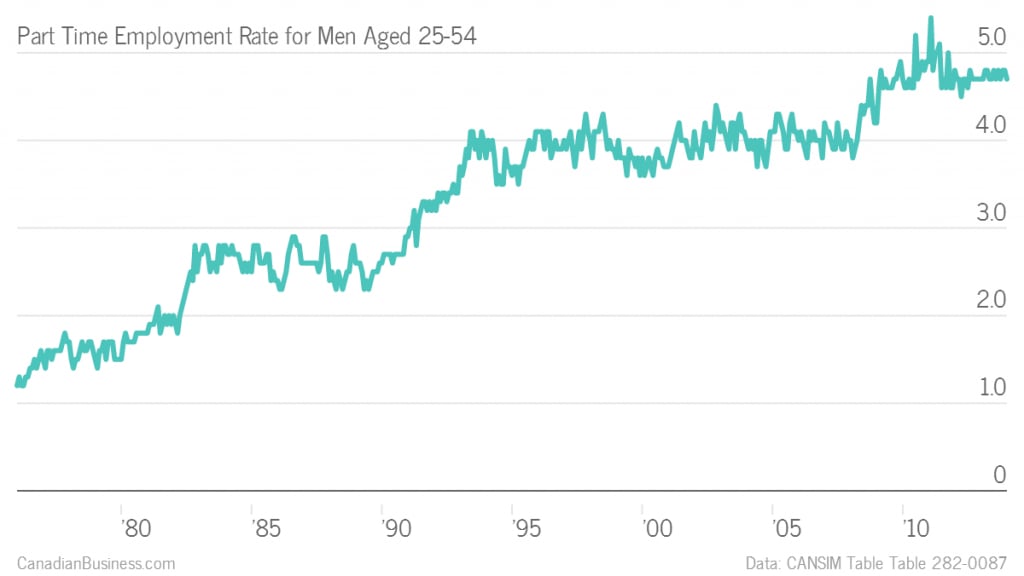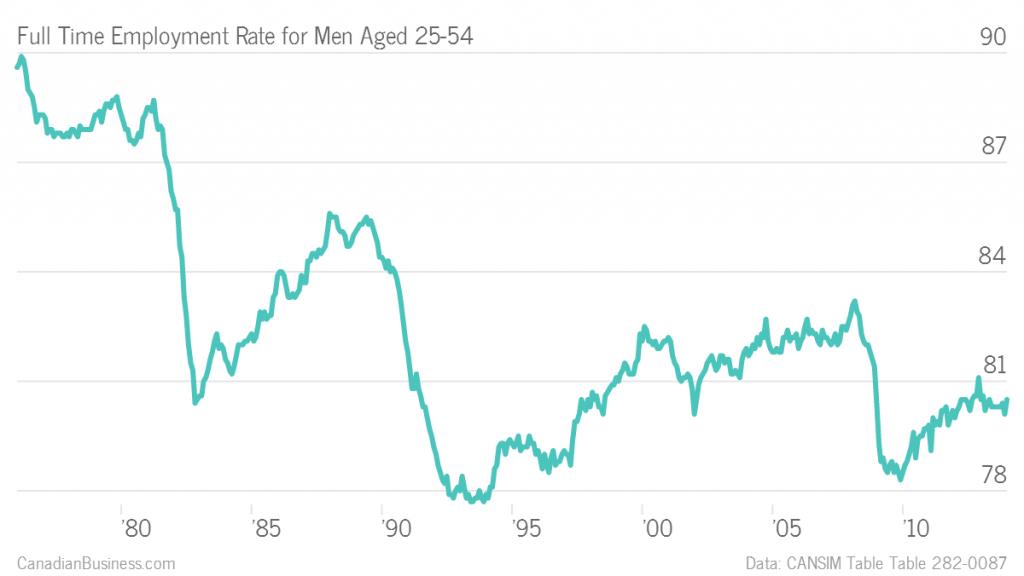Job creation should still be a top priority
The recovery hasn’t been kind to men, and that should concern policy-makers
Share
In a recent piece on the Maclean’s Econowatch blog, my colleague Stephen Gordon argues that job creation is no longer a priority. I fully agree with Stephen that demographics are important, and that long-term trends suggest (though do not guarantee) that “workers of the future will have little trouble finding jobs.” One way to control for demographic effects is to look at employment figures by demographic group. For instance, the percentage of women between the ages of 25-54 holding full time positions has returned to near record-levels:
The same, unfortunately, does not hold true for men. Until the recession the full-time employment rate for men between the ages of 25-54 hovered between 82% and 83% before the recession. It bottomed out at 78.3% at December 2009, and in the nearly three years since March 2011, it has hovered just over 80%.
Although “the recession ended four years ago,” as Stephen puts it, the job market for men has not returned to the levels of 2004, let alone the boom period of 2006-2008. The employment market for men, however, is not as bad the above chart would suggest, as the reduction in full-time employment has been partially offset by a rise in part-time employment:
A two percentage-point decrease in full-time employment and a one percentage-point increase in part-time employment may seem small, but a back-of-the-envelope calculation shows the effects are quite large. There are 7.3 million men between the ages of 25-54. Returning to pre-recession levels would mean that an extra 146,000 men of this age would have a full-time job, with half of those being drawn from the ranks of the out of work. This would provide Canada with an extra 4.7 million total hours worked per week based on average hours worked data (for this demographic group). Canadian workers, on average, generate an average of $50 of GDP per hour worked, so our back-of-the envelope figures have Canadian GDP increasing by roughly $235 million per week, or over $10 billion per year while still allowing these newly employed a few weeks of vacation.
Unfortunately, there is no guarantee that these jobs will ever come back. We have seen permanent jumps in part-time employment in the past:
Along with significant—and permanent—drops in full-time employment after some (but not all) recessions:
Simply put: male employment has not recovered from the recession and if history is any guide, there is a good chance it never recovers. This absolutely should be a top-of-mind concern for policy-makers.




